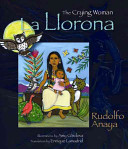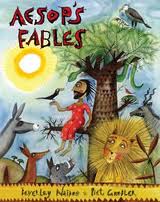
In ancient Mexico, beautiful Maya’s children are endangered by the threat of Senor Tiempo who, jealous of their immortality, plots to destroy them.

In ancient Mexico, beautiful Maya’s children are endangered by the threat of Senor Tiempo who, jealous of their immortality, plots to destroy them.
This picture book brings a light touch and engaging silliness to the story of a prince who rejects the lavish luxury of his upbringing in favor of a life as . . . a rooster. The only person who can persuade the prince to reconsider is neither a doctor nor a magician but a wise teacher who is willing to become a rooster too.
How much work can one little chicken be? When Leora finds a chicken in her front yard, she imagines keeping it as a pet and gathering eggs for breakfast every morning. But her mother has a very different view. Following a Jewish law that says “finders aren’t keepers,” Mrs. Bendosa is determined that the family should care for the chicken just until its rightful owner returns. Soon, however, one little chicken becomes a flock of chickens, a flock of chickens becomes two goats, two goats become a herd of goats…until—Oh! What a house! Elisa Kleven’s detailed folk art brings Elka Weber’s humorous retelling of a traditional tale to life and promises to leave readers pondering the adage, “finders, keepers.”
When Zozimos is banished by an evil witch (his stepmother!) from the kingdom of Sticatha-the kingdom he was next in line to rule-he trains at battle (if you call chasing after butterflies training), travels across stormy seas (thanks for that, Poseidon), slays golems and monsters (with a lot of help), charms beautiful women (not really), and somehow (despite his own ineptitude) survives quest after quest. By the love of Zeus, though, none of it brings him any closer to home!
All over the world, there is a wealth of fascinating traditions and legends surrounding the Christmas story. Here are five festive folk tales, retold by Saviour Pirotta, originating from places as far-flung as Mexico and the Middle East, Northern Europe and North Africa. Sheila Moxley’s vivid artwork adds to the seasonal spirit, making this a true celebration of Christmas, throughout the world.
Read how the lost little camel’s perseverance, resourcefulness and bravery led him back to his mother and baby Jesus’ manger; How an old Baker woman’s kindness and ingenuity saves the life of Baby Jesus and feeds a starving village; The story of a how a goatherding father and daughter, guided by angels, journey to meet the newborn Saviour and present him with weeds that have been transformed into beautiful red Christmas flowers; How selfless little Kumbi puts the needs of others before her own and is rewarded with a gourd of overflowing water to replenish supplies amid drought in her village; Lastly, a Russian variation of the Father Christmas story, where Babushka delivers presents to children from her bottomless basket of toys.

A little mouse saves the life of a great lion; hungry Grasshopper, too lazy to store food, gets no mercy from the industrious ants; crafty Jackal tricks Klipspringer to escape death – but is himself tricked by the cock and the dog…. Here are 16 of Aesop’s wise, witty and timeless fables, portrayed for the first time in an African setting.
A retelling of the story told to Marco Polo about the Magi of Saveh, three wise men from a town in Persia, who followed a strange star and find a special child.